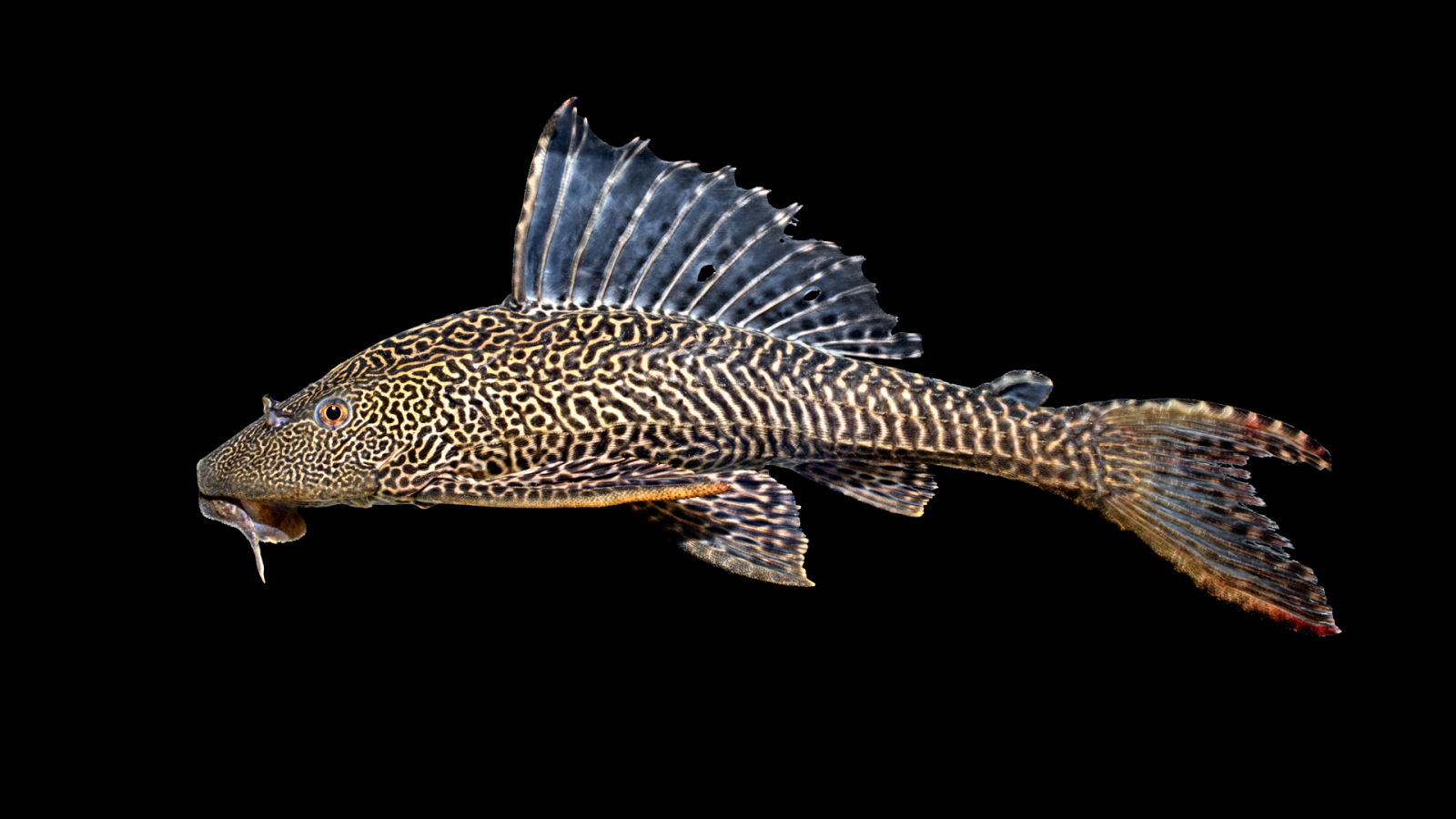Playing with fire: Summoning aliens through ornamental fishkeeping
Unabated trade in exotic fish species can trigger irreversible complications for biodiverse aquatic ecosystems

Highlights
-
Fishkeeping is a common means of biological invasion around the world. When unregulated, it can create irreversible impacts.
-
Countrywide invasion of pleco in Bangladesh is solely due to irresponsible fishkeeping.
-
Both pacu and piranha, common as hobby, are feared to be invaders. Piranha is cultured in many places.
-
Wild stocks of many species have been depleted to support the demand of hobbyists.
-
90% of marine fish traded as hobby are caught from the wild in a gruesome process called cyanide fishing
-
Nile perch, after being introduced, literally decimated several hundred species in Lake Victoria, Africa
The story starts in the past. It was 2000 or 2001 when the capital's Banasree, my residence, was largely an empty wetland with plots curved out here and there. I was then 10 or 12. But my memory is still fresh, raw and vivid.
During monsoon, the whole area swelled and served as pied-à-terre for native fishes. It radiated a festive vibe every evening of those golden monsoon periods as the flooded plains buzzed with fishers and anglers.
In due course, the area was stripped off this appealing scene, which now, cannot even be imagined by millennials. But it surely was one thing to me: it was the dawn of my obsession with fish and every sort of wildlife.
Fishkeeping is an ancient endowment dating back to the Roman period. In Bangladesh, the hobby is not new either, rather it is expanding into newer dimensions. With the evolution of social media platforms, the hobby has gotten a massive boost. Bewilderingly diverse fish species – presenting every shape, size, colour and form imaginable – are now being imported to quench the demand.
Each new shipment lot drives the hobbyists' adrenalin rush. There is a caveat in this which is often overlooked, but it is a big one and irrefutable. Environmental complications associated with non-native, alien species are the darkest side of the haphazard aquarium trade. Around the world, many exotic aquarium fishes prefer not to stay only within glass boxes, and they are now taking a heavy toll on pristine indigenous ecosystems.
What is an invasive exotic?

Invasive species are simply non-native, non-indigenous, alien, invasive exotics, or simply exotic species. This is a nomenclatural term used for animals and plants that can spread beyond their own ecological origin, become abundant and adversely affect the non-indigenous habitats and bioregions of introduction.
They can topple the balance economically and/or ecologically and are increasingly recognised as one of the main threats to biodiversity and one of the main drivers of global change. All invasive species, both terrestrial and aquatic, have a few things in common: they are extremely hardy and highly adaptable. The habitat to be infested shares similarity with that of origin. For example, almost all freshwater invasive fishes are tropical, and they can survive in waters with depleted oxygen.
The advent of globalisation has greatly accelerated the efficacy of alien species. As evidenced by global case studies involving invasive cichlids, carps and catfishes, 10 percent of all freshwater fish introductions are likely to result in adverse ecological effects on freshwater ecosystems and fish taxa, which eventually lead to habitat modification, hybridisation and extinction of outcompeted native or endemic species.
For example, the introduction of Nile Perch, a highly predatory fish, literally decimated several hundred native species in Lake Victoria, Africa. Yes, you read it right. The entire fish diversity of the lake was destroyed by a single species.
Aquatic invasions in Bangladesh

In the last 50 years, about 20 species, mostly carps, got a foothold in freshwater systems of Bangladesh. However, infestation done by the North African catfish (African magur in Bangla) and two cichlids under genus Oreochromis (tilapia and nilotica in Bangla) have proved much more hazardous. But their impact has not been assessed yet.
Pacu and its congener piranha have food value and are recently being cultured at several places in Bangladesh. Pacu is considered by some as less harmful than the flesh-eater piranha. In reality, pacu gets even bigger and no less destructive.
There is one species called croaking gourami, a small fish with abilities to produce sounds. This is a fish native to Southeast Asia. How it got here is still a mystery.
If we take the discussion to aquatic plants, this story will stay unfinished. Almost all free floaters and rooted floaters we see around us are from tropical South America. Water hyacinth and water letus are two stark examples – both with tremendous ability to clog flow and cover entire water surface.
As we can see, we do not know much about the exotic species dwelling in our waters. At the same time, we are making way for newer aliens. Some thoughts to consider, eh?
The notorious pleco

Although most of the fish exotics made their way through aquaculture. Ornamental fishkeeping should be solely credited for at least one species – the infamous suckermouth catfish or pleco. The pleco, under genus Pterygoplichthys, can outgrow standard-sized aquariums in a year. They are often unknowingly released by "merciful" aquarists, only to disrupt peace in native waters.
The catfish has invaded nearly all tropical countries. All water reservoirs of Dhaka metropolis are now literally cramped with hundreds of this bottom-dwelling, fast-growing species. They regularly pop up from different corners of Bangladesh.
They now live in mangrove peripheries of the south-central coast. You can find them at the riparian waters of Panchagarh. They even live in the runnels of tea gardens in Sylhet.
The tilapias

The tilapias, formally called cichlids, are of the Cichlidae family, with over 1,700 described species, making them one of the largest vertebrate families. These percoids vary greatly in size. Except Asia's native chromids, cichlids originated from Central and South America and Africa. They can be minute (up to 3cm, Neolamprologus), in Eastern Africa, to gigantic (more than two feet, Cichla), in Mesoamerica.
Intelligence, high territoriality, school keeping behaviour, bullying nature, varieties of feeding styles, strong jaws, pointed erectable dorsal spines, high reproductive potential, legendary habit of brood care and incredible adaptabilities have made cichlids well-suited to invade and conquer any aquatic ecosystem and outpace any other freshwater fish species.
A Frankenstein breed

Flowerhorn is a fertile crossbreed, man-made creation invented in 1994 by crossing between two Central American cichlids: Red devil Amphilophus labiatus and Trimac cichlid Amphilophus trimaculatus. As this hellish creature grows bigger, an abnormal hump begins to develop on its head. The larger and brighter the hump, the fish will be treated as a more perfect sign of luck, nothing but absurd cruelty.
Despite the fact that this breed suffers from face and head structure abnormality, it is the most aggressive and adaptable of breeds, and has a dreadful appetite for all cichlid-born cross-breeds. It also has a bad reputation of mating with not only its own kind but also with other cichlid species. Being fertile and a hybrid at the same time gives it further efficiency. Flowerhorns have been reported in the waters of Kerala, India.
Keeping monster predators
There is another trend in the world of fishkeeping. Fishes that can reach a humongous size and have a voracious taste for smaller fishes, are preferred. This list is dominated by red-tailed catfish, arapaima and sorubim catfish from South America, alligator gars and bass from Mesoamerica, featherbacks from Southeast Asia, gigantic eels from Africa and what not.
Almost all the mentioned names can grow up to six feet and have already invaded waters of Southeast Asian countries like Thailand, Singapore and Malaysia. Alligator gar is regularly reported in South India. If this continues unchecked, it is a matter of time before they call this delta their home.
An even darker side
Many fishes are being supplied directly from the wild, and many species of wild stock are completely being drained off. There is one unfortunate name from India: torpedo barbs, a cousin of our puti but more vividly coloured, from genus Sahyadria, that are absolutely threatened in the wild because of pet trade.
According to a study published in the journal Biological Conservation, 30 threatened species in India comprising a total of 1.5 million individuals were exported between 2005-2012.
There is another name in Indochina, the famed Asian arowana. Its price can be several grands, and we are talking US dollar here. Wild stock of the Asian arowana is a part of myth now.
Whereas up to 90 percent of freshwater species in aquariums are bred in captivity, the same proportion of marine fish traded as hobby is worrisomely caught from the wild. Catching a fish in reef is not easy and calls for more ruthless methods. Marine fishes are first stunned by cyanide poisoning; many die before being caught. The rest that survive the process die within a year.
Before it is too late

What will happen if these exotic cichlids form a feral population in wetlands, marshes of Bangladesh? What if all of our water-bodies become full of monster predators? Bangladesh has a very similar inland aquatic ecosystem to those of South America and tropical Africa. If exotics can escape, they will find our country very suitable to invade.
They will lead exactly the same mission that they have done perfectly in Australia and US. In the first wave of their invasion, we will lose our native barb, minnow, killifish, glass fish, carplet, chameleon fish, gourami, and the whiskered catfish population. Then our own moderate to large size predatory fishes will be targeted and a large number of them will starve to death.
Shrimps will vanish and the mollusk population will deplete. This chain reaction can make various birds like herons, egrets, kingfishers, etc get involved. Cichlids are very hard to hunt down and have developed tremendous strategies and tactics to deceive the predators, which are completely unknown to our native birds. If there is no small fish population, food scarcity will increase. Consequently, there will be no birds.
Unregulated trade in species with potential invading ability should be checked strictly in Bangladesh. Handling and trading of predatory species like peacock bass, arapaima, sorubim catfish and flowerhorn must be dealt with care. The impact of already introduced fish like pacu, piranha and pleco should be monitored. Eradication measures also need to be considered. At the same time, awareness campaigns should involve the fishkeepers' community.
There is still time to avert the alien invasion in our waterbodies.



 Keep updated, follow The Business Standard's Google news channel
Keep updated, follow The Business Standard's Google news channel
















